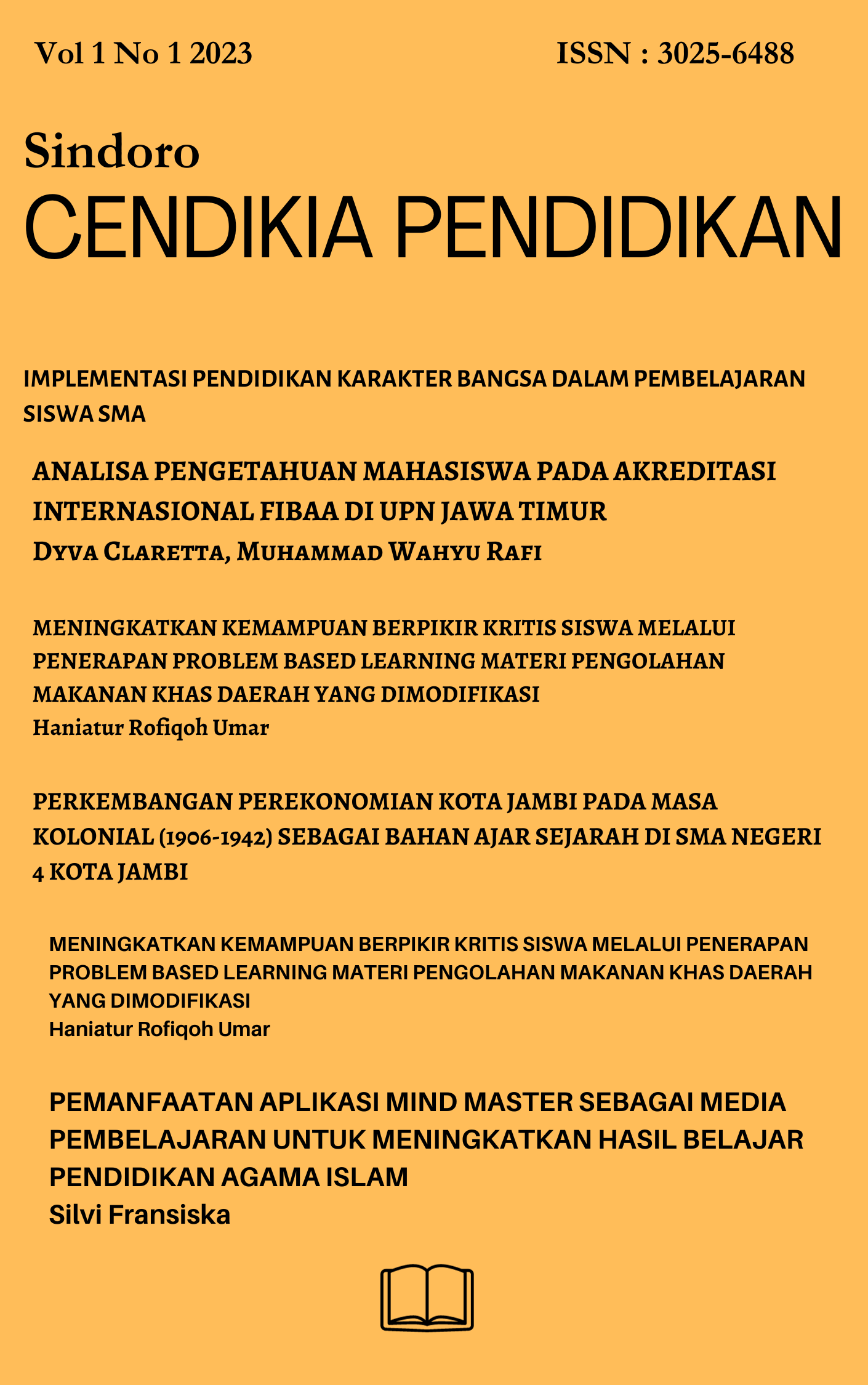A LITERATURE REVIEW ON THE INFLUENCE OF MOTHER TONGUE ON STUDENTS’ SPEAKING SKILLS IN ENGLISH LANGUAGE LEARNING IN INDONESIA
Main Article Content
Abstract
Mother tongue is the first language acquired by children from their young age and each language has its own feature and structure that differ from one to another including English language, the most spoken language in Indonesia as foreign language. This study aims to show how mother tongue influencing students’ speaking skill in their English language learning and to find out what are the challenges faced by them. This study was conducted using literature review with qualitative design by gathering library data, reading, and evaluating the information. The article searches conducted by using google scholar and keywords used to search the articles are “Influence of Mother Tongue, Speaking Skill, English Language Learning Indonesia”. Eight relevant articles published between 2020 and 2025 were selected from Google Scholar to support this literature review. The result shows that mother tongue does affect students’ English language learning, especially in students’ speaking skill and there are found several challenges faced by students, they are 1) Pronunciation factors; 2) Psychological factors; 3) Grammatical factors; 4) Environmental factors.
Article Details
Section
This work is licensed under a Creative Commons Attribution-ShareAlike 4.0 International License.
How to Cite
References
Abbott, B. B., & Bordens, K. S. (2018). Research design and methods: A process approach. McGraw-Hill.
Bailey, K. M. (2003). Speaking. Practical English language teaching, 47-66.
Baule, M., Liando, N. V., & Kamagi, S. (2023). THE INFLUENCE OF MOTHER TONGUE ON THE SPEAKING ABILITY OF SANGIHE ENGLISH STUDENT IN UNIVERSITAS NEGERI MANADO. JoTELL: Journal of Teaching English, Linguistics, and Literature, 2(8), 1035-1043. https://doi.org/10.36582/jotell.v2i8.7133
Brown, H. D., & Abeywickrama, P. (2004). Language assessment. Principles and Classroom Practices. White Plains, NY: Pearson Education.
Brown, H. D. (2007). Principles of Language Learning and Teaching. Pearson Education.
Budiharto, A., & Rokhmawati, D. (2023). Investigating Mother Tongue Effect In The Acquisition Of English Prepositions By Indonesia-Speaking Learners. Journal of Educational Sciences, 7(1), 95-109. https://doi.org/10.31258/jes.7.1.p.95-109
Farizawati, F. (2017). Improving Students’ Speaking Skill by Using Animation videoâ€.(An experimental study at the second year students of SMPN 1 Muara Tiga). Jurnal Sains Riset, 7(1).). https://journal.unigha.ac.id/index.php/JSR/article/view/16
Irene, J., Sathasivam, K., Ng, M. M., Jeyaraja, S. S. B., & Maniam, M. (2023). The Effects of Mother Tongue Interference among ESL Learners’ Speaking Skills. http://dx.doi.org/10.6007/IJARBSS/v13-i7/17453
Krashen, S. D. (2003). Explorations in language acquisition and use.
Noviyenty, L., & Putri, M. I. (2021, March). Mother tongue interference towards students’ English pronunciation: A case study in IAIN Curup. In Proceedings of the International Conference on Educational Sciences and Teacher Profession (ICETeP 2020) (pp. 283–290). Advances in Social Science, Education and Humanities Research (Vol. 532). Atlantis Press. https://doi.org/10.2991/assehr.k.210227.049
Pal, S. (2013). Mother tongue influence on spoken English. In Conference proceedings ICT for language learning (p. 454).
Pratiwi, R. (2024, May). The influence of mother tongue on English language teaching: Implication and solutions. In Proceedings of the 3rd International Symposium on the Practice of Coexistence in Islamic Culture (p. 598). AICONICS Proceedings.
Sabata, Y. N., Liise, D., Nggolaon, D., & Lakuana, N. (2023). The Effect of Mother Tongue toward English Pronunciation. Applied Research on English Education (AREE), 1(2), 73-79. https://jurnal.unimus.ac.id/index.php/AREE
Siahaan, D. G., Wattu, L. M., Bouk, E., & Emanuel, U. (2022, August). Analyzing the Influence of Mother Tongues to English Speaking at the Eight Grade Students of Neonbat Junior High School. In SEMINAR NASIONAL LPPM UMMAT (Vol. 1, pp. 686-692). https://journal.ummat.ac.id/index.php/semnaslppm/article/view/10198
Subandowo, D. (2017). The language interference in English speaking ability for Efl learners. Proceedings of ISELT FBS Universitas Negeri Padang, 5, 205-210. https://ejournal.unp.ac.id/index.php/selt/article/view/8005
Syafutri, T., & Saputra, A. (2021). The first language interference toward students’ English speaking as foreign language. Linguists: Journal Of Linguistics and Language Teaching, 7(1), 39-51. http://dx.doi.org/10.29300/ling.v7i1.4327
Wicaksono, A., & Roza, A. S. (Eds.). (2015). Teori Pembelajaran Bahasa: Suatu Catatan Singkat. Garudhawaca.
Yadav, M. K. (2014). Role of mother tongue in second language learning. International Journal of research, 1(11), 572-582.
Zahrotunnada, A. (2023). A Study of Malangan Javanese Accents towards Students’ English Pronunciation: Students and Teachers’ Perception. https://repository.unisma.ac.id/handle/123456789/7251

